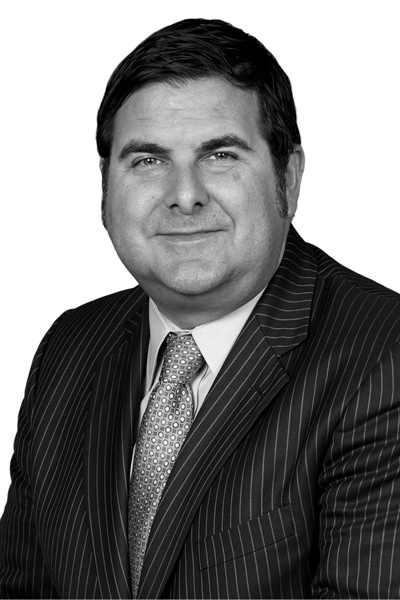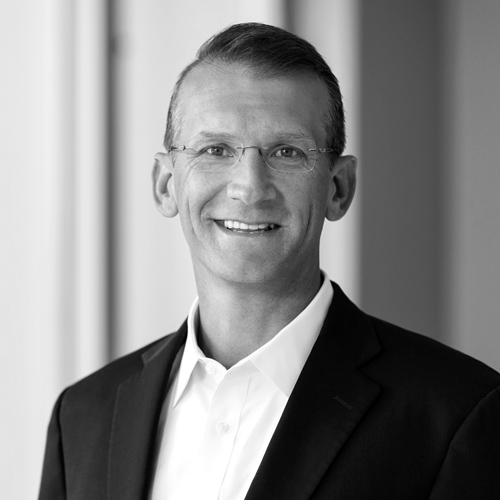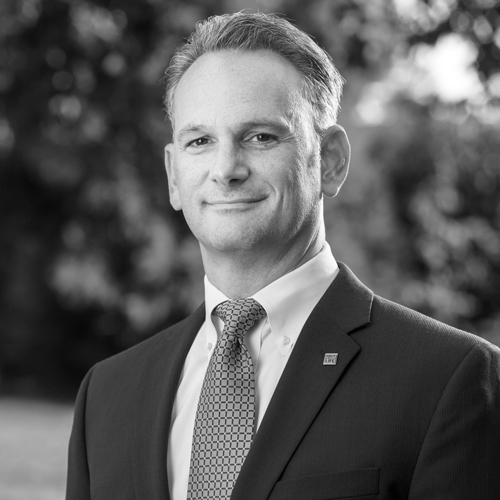
Chris Celtruda saw an opportunity and built a company to meet it. The opportunity: servicing military aircraft as they aged. The company: Kellstrom Defense, based in El Segundo, California.
In four years, Celtruda purchased five separate companies, merged them into Kellstrom Defense, and built a business that operates in sixty countries around the globe. In doing so, he has created a premium name brand by successfully integrating these disparate businesses and, as CEO, personalizing that brand while walking the talk.
Celtruda grew up in Connecticut and earned an engineering degree at the University of Maine and an MBA at the Arizona State University WP Carey School of Business, along with a joint degree in international management from the Ecole Supérieure de Commerce in Toulouse, France. With more than twenty years of experience managing complex businesses in the aerospace, defense, and industrial markets, Celtruda has cut his teeth in business and operations leadership, engineering, M&A, restructuring, and business development.
Before forming Kellstrom Defense, he was managing principal at Destiny Equity Partners, which provided advisory services to investment firms for strategy, business management, transactional M&A, and investment in manufacturing enterprises. He also served as president and corporate officer for the $1.2 billion Gardner Denver Industrial Products business unit, and before that, he was the group executive and corporate officer who led the formation of the global CIRCOR Aerospace division of CIRCOR International. He also spent more than twelve years in a variety of roles in the aerospace market vertical with Honeywell International and the former AlliedSignal.
With that background, he was in a perfect position to pounce on a new market opportunity. “The defense aftermarket was highly fragmented, and we had the view that, after several down years because of restrictions on military spending, the defense cycle should start to rebound,” Celtruda says. He partnered with PNC Equity and Dubin Clark to purchase Kellstrom Industries’ defense aftermarket business, along with another business that repaired aircraft equipment, and others to distribute and perform other necessary functions.
“We were looking to scale and increase our exposure to domestic spending for the military,” he says. “It was integral to our strategy to plan on defragmenting the aftermarket and build a total solution to manufacture, distribute, and repair, using common sales channels and shared overhead.”
While the pieces fit, they didn’t coalesce seamlessly—at least not at first. So Celtruda’s main task early on was to build a leadership team that shared a similar vision. “I had to recruit and develop a group of people capable of running something bigger than they had in the past,” he says. “I helped them to focus on the right priorities, communicate, and collaborate. Our business model depends on teamwork and partnership between different operating segments. We acquired five different cultures. Some of those people were able to adapt and change. Others weren’t.”
The number one strategy for creating a unified culture, Celtruda says, is communication. “You take a group of businesses that had different leaders, with different styles and strategies, and you need to tell people 3–5 times what the new mission is, what the new values are, what the measurements are, before it sinks in and is successful,” he says.
“If there’s anyone who can bring together disparate teams, it’s Chris,” says Kenneth Bram of AUSCO Inc. “He can work with anybody and get them to work together.”
His number two strategy is defining the mission. “We believe we are not just putting parts in a box and shipping them out,” he says. “We appeal to people’s sense of being part of something bigger, and we make sure everyone understands we have a very high standard of what good looks like.”
The company strives to celebrate success. Kellstrom Defense regularly gives out employee recognition awards. Celtruda mentions a team member at the company’s Florida facility who went above and beyond to deliver a key part that was needed before an air force jet could be evacuated in advance of Hurricane Irma as an example of an outstanding employee. “There was a high likelihood the plane would have been damaged, and this employee effectively hand-delivered the part,” he says proudly. “We make sure we share that story with the rest of our employees. Our view is we must grow with our customers today and keep them tomorrow, and that kind of service really sums up our core values.”
Along with building the culture, Celtruda had to establish and then promote Kellstrom Defense’s emerging brand identity. He defines that now in what the company calls the Kellstrom Defense Promise. “We believe our differentiator is our people, our investment in talent,” Celtruda says. “The other part of our promise is about creating value for our customers. We are not positioned as the least expensive choice. We are positioned as providing long-term value, which isn’t usually the cheapest up front.”
The company also puts a strong focus on ethical conduct. Kellstrom Defense is subject to the local laws of more than sixty countries and complies with all relevant US Export Regulations. Celtruda says he takes a hard line when it comes to ethics and compliance. All of that is to support the company’s underlying mission as the leader in keeping older aircraft flying. Kellstrom Defense services aircraft that may be 50–60 years old, which have been sold or leased to foreign operations after they are replaced by newer aircraft in the United States.
“We are about keeping those aircraft supported,” Celtruda says. “It is a worldwide mission. Anywhere an ally of the US or a US-forward operation exists, we support those aircraft, whether it’s for defense or for humanitarian relief. We take a lot of satisfaction in making sure the mission happens, and US foreign policy mandates are reinforced.”
And as CEO, he tries to embody the company’s culture and identity himself. “It’s about accountability,” he says. “I call it modeling the way. On my executive team, we have recruited a group of high-character leaders, people who I know follow the rules and would never knowingly violate a regulation. Given the criticality of our mission to drive mission readiness and ensure a high bar in regard to compliance, our customers and investors need to understand the very top leaders, including myself, can withstand the litmus test for ethical conduct.”

